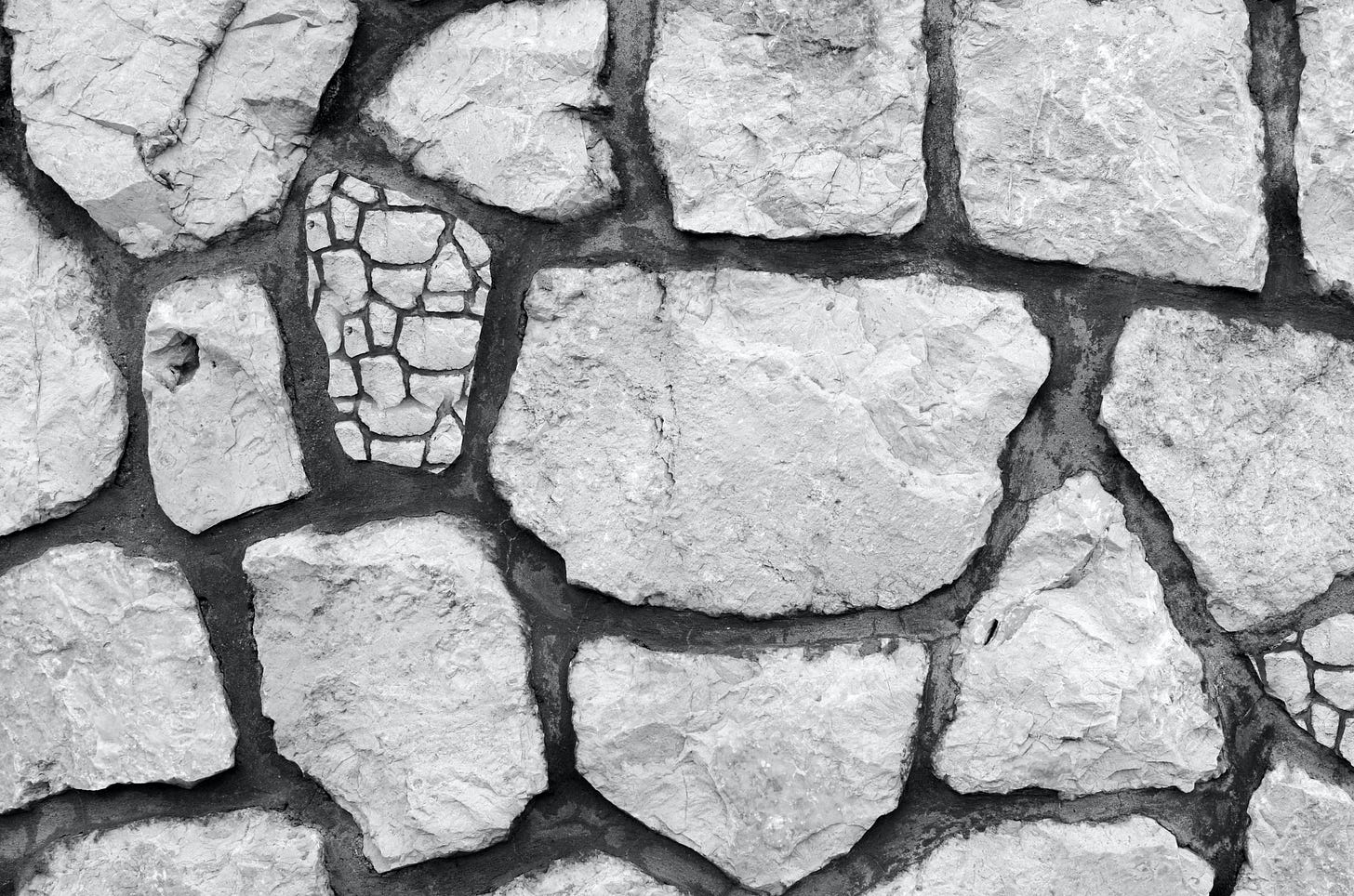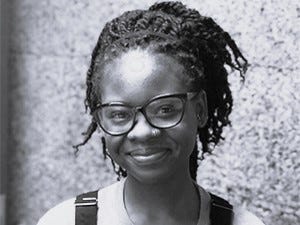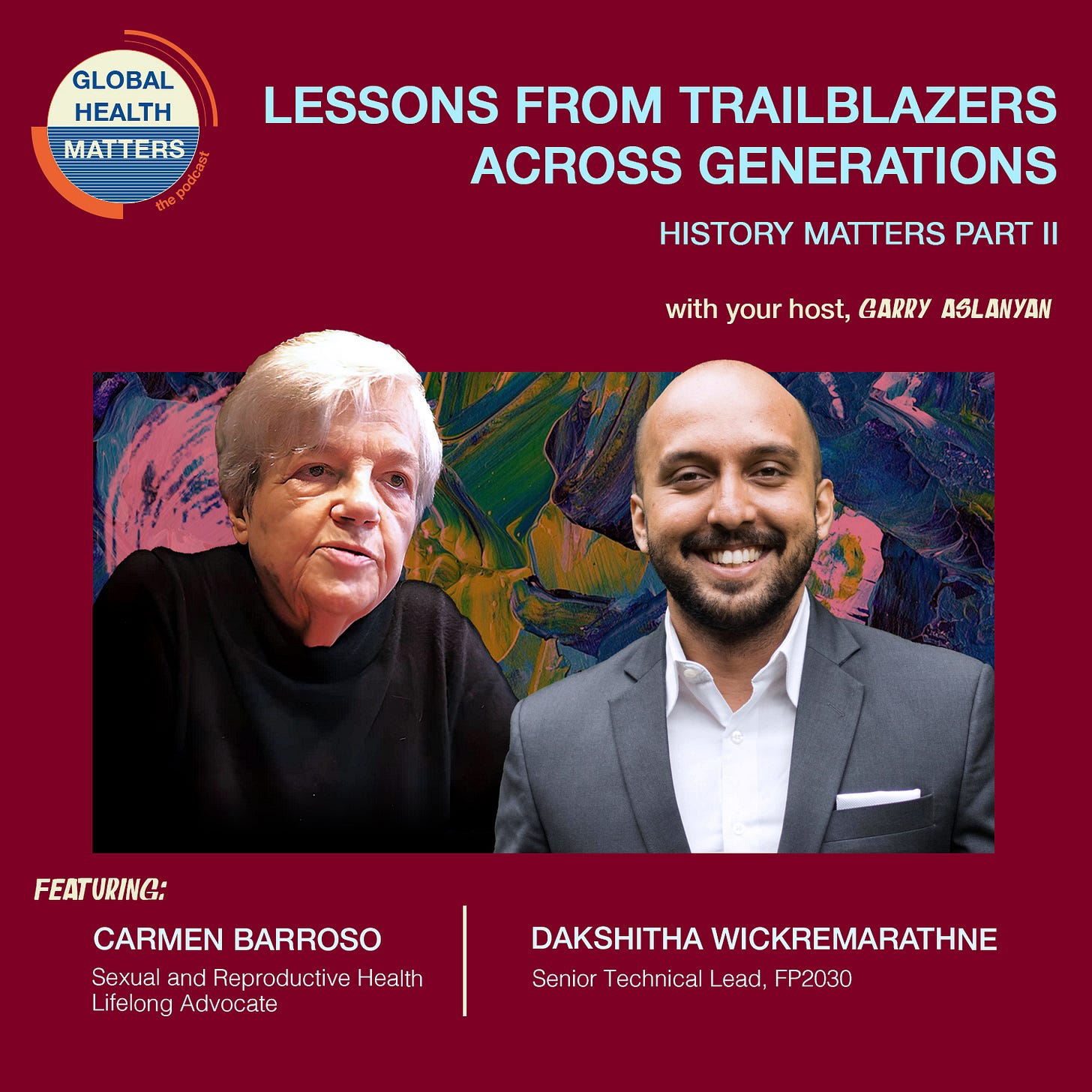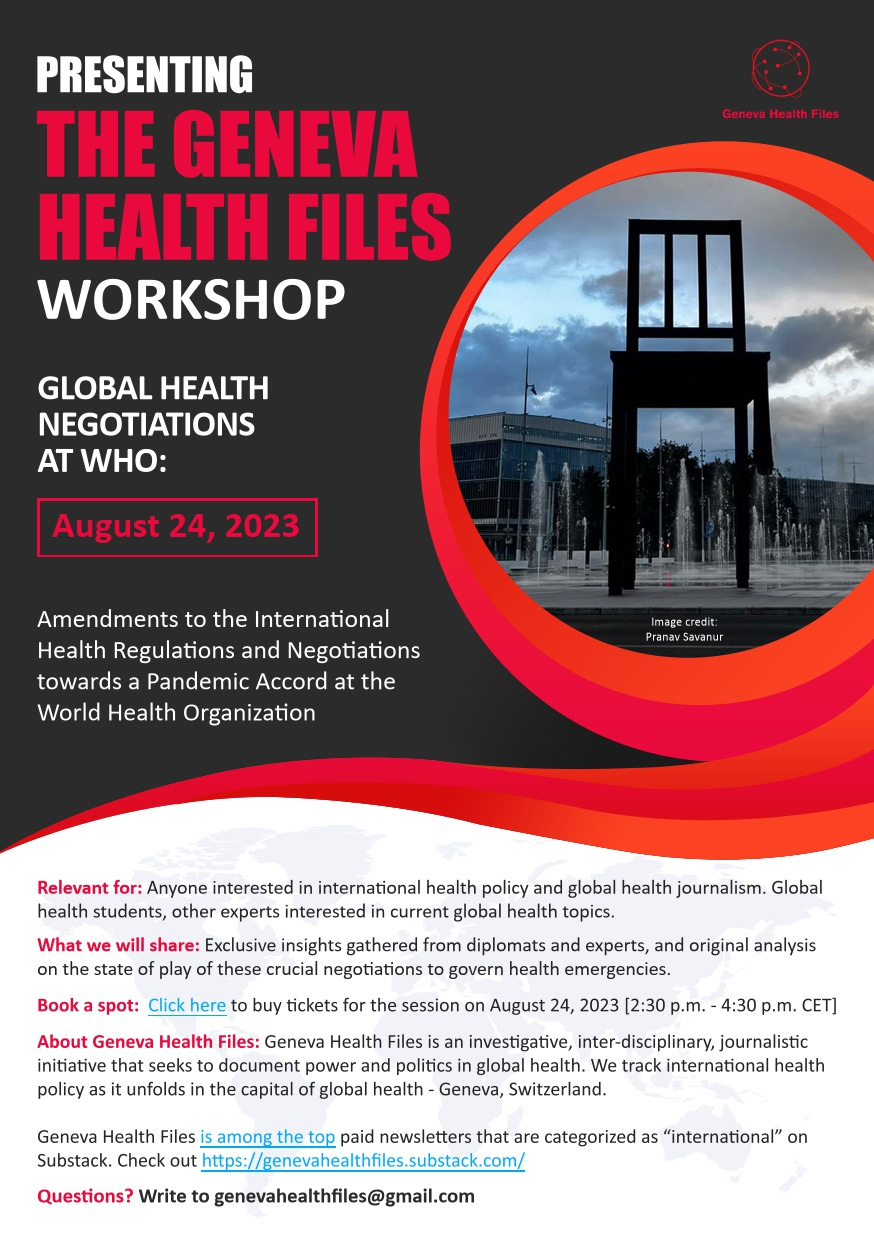A moment of reckoning? Confronting racial-colonial legacies in the wake of global health emergencies [Guest Essay]
Newsletter Edition #196 [The Files In-Depth]
Hi,
Storytelling is a responsibility. How stories are documented have real consequences for tomorrow. Today’s narratives shape future policies.
Any self-aware reader of history will tell you, that who documents history, and how it is written has a defining effect on people’s lives. And therefore to an extent, history-making is policy-making. Hence the constant power struggle to shape narratives all over the world, not just in populist democracies.
In today’s edition, I am pleased to bring you an essay by one of our Fellows for this year, Lulwama Kuto Mulalu from Bostwana who is currently pursuing her PhD in global health. In this searing essay, she contextualizes the inequities witnessed during the pandemic of COVID-19 in the historical injustices that worsened the implications of the health emergency.
We hope you like this edition. We would love to hear your feedback.
Also check out this podcast on decolonizing our minds by Global Health Unfiltered.
Like our work? Consider supporting our journalism that ensures nuance, detail, and accuracy. Readers paying for our work helps us meet our costs. Thank you for reading.
Until later!
Best,
Priti
Feel free to write to us: patnaik.reporting@gmail.com or genevahealthfiles@protonmail.com; Follow us on Twitter: @filesgeneva
I. GUEST ESSAY
A moment of reckoning? Confronting racial-colonial legacies in the wake of global health emergencies
By Lulwama Kuto Mulalu
I come to this essay not as a historian but as a humble observer of the world with an affinity for history. I write because this particular moment in our shared human history calls for more honesty in how we as academics, politicians and fellow travelers alike choose to describe the evidently growing dysfunction of the world around us. I believe that radical honesty and more truthful storytelling are the lanterns that will illuminate our way forward as a global society, a society that is watching with mouth agape as the world around us literally burns. I also write because old social wounds fester when they are left unattended and I believe our historic wounds are beyond septic.
The sheer gravity and unprecedented nature of the interlinking global crises we face today must not be underestimated or minimised, as they have been. A new political imagination that fully recognises the grievous injustices and mutating ruptures from the COVID-19 pandemic is of critical importance, because it intimately shapes how we navigate the aftermath of the tsunami ahead. The COVID-19 pandemic has accentuated the inequities in our global structures, and how we handled vaccine distribution is symptomatic of the invisible colonial, racial and imperial logics that govern us still today.
The inequitable distribution of COVID-19 vaccines worldwide has not only overtly divvied up the world and global vaccine access along the intersections of race/ethnicity, gender, class and citizenry, but has also given room for the unaddressed roots of socio-economic inequalities, which were born from historic colonial disparities, to manifest themselves in more pronounced and undeniable ways.
Within the first year of distributing COVID-19 vaccines, wealthy nations pre-purchased doses en masse and hoarded the global vaccine supply, allowing them to achieve vaccination rates of 75-80% of their populations, whilst some low-income countries only managed to vaccinate around 30% of their citizens (low rates are often lazily attributed to vaccine hesitancy, however the magnitude of the gap implies that supply, exclusive patent regulations, knowledge transfer and limited infrastructure are at the heart of the issue.)
While monopolising the global vaccine supply chain, European Union member states, the United Kingdom and the United States not only refused to share their technologies to ensure wider distribution, but also prioritised the corporate interests of the pharmaceutical companies they are home to. The erected barriers denied many Black and Brown people from various vulnerable low-income countries critical and timely access to life-saving vaccine doses - leaving them unprotected and at higher risk of post-Covid infection complications. By the end of 2021, only 8% of the African continent’s 1.2 billion people were fully vaccinated, in 2022 it was an unfathomable 21.1% and in March of 2023, three years after the onset of Covid-19, the rate was 37.2%. With a population of 1.216 billion people, the African continent has the lowest vaccination rate of any continent, with less than 50% of percent of the entire population on the continent receiving at least one dose of any of the vaccines.
This abysmal failure in collective action amongst our global leaders to ensure fair access has led to devastating and compounding consequences including deepening poverty, prolonging economic recovery, introducing instabilities and negatively affecting the state of human rights around the world. WHO called this glaring disparity in access and distribution a “catastrophic moral failure", making it one of the greatest failures of international cooperation and exposing the serious gaps in multilateral action. It is indicative of our continued global failure to nurse old rupturing social wounds, repair fractured relationships, exorcise colonial power hierarchies and adequately redress the still largely unaccounted for race-based injustices that artificially manufactured higher death rates among the most vulnerable, worsened discrimination and catalysed [social] exclusion.
The plaguing issue of COVID vaccine inequity comes from a pervasive racism rooted in slavery, apartheid and colonialism. The global maps of vaccine [in]access bring into sharp focus the ways in which social, economic and political power can intentionally produce excess and unnecessary deaths in the Global South where vaccines are systematically made unavailable.
This deliberate triaging of bodies and political calculation of life and death are what Achille Mbebe calls necropolitics, which he describes as: “the capacity to define who matters and who does not, who is disposable and who is not.” This philosophical framework elucidates how governments, institutions and corporations assign differential value to human life (and by virtue of that, to whom empathy and human rights are extended). The embedded logic of necropolitics that structures our societies stems from an incomplete reckoning with our long coinciding and entangled histories of deep-seated inequality, dehumanisation, white supremacy and the continually unaddressed forms of state-sanctioned violence. These pre-existing harmful ideas and sacrificial logics manifested in very clear manners following Covid-19, as they have done with any global crisis we encounter where we see that some lives are deemed as having more value and worth than others and therefore, more grievable in their loss.
The interconnected and interlocking threats we face globally, from the ongoing pandemic apartheid and the worsening climate crisis, to geopolitical instability and large-scale involuntary migration, are symbolic of a kind of a self-destructive pathological condition that refuses to be eradicated from the DNA of our societal fabrics. We can only feign ‘surprise’ at this level of psychopathy and unmitigated societal dysfunction/ disintegration if we have not been careful enough witnesses to history, historical trauma and the pedagogies of the oppressed.
History itself is a living creature - its deep reaching wounds are alive and well, and are continually [re]- birthed by the pervasive silences, oppressive structures, imperial ideologies and colonial ghosts embedded in our entangled histories of empire, blood, brutality, alienation, exploitation, subjugation, systemic racism, violence and state-building. This enduring cannibalistic pathology has pervaded our collective memory and present-day consciousness in ways that continue to unconscionably profit from pain. But our failure to adequately remember tragedies like colonialism and slavery, and how those phenomena ideologically architected the unequal world we reside in today, are more than just a mere ‘forgetfulness’ as sociologist Gary Younge states in his work: it is a specific memory culture built on strategic ignorance, revisionist history, racial prejudice and deliberate ‘post’- colonial amnesia in order to protect capital flow, hierarchies of power, and the globality of Euro-American socio-political dominance. It is not an accident; it is a new world disorder that is making itself known more loudly in its blatant disrespect for the dignity of who it considers to be the ‘Other’.
One can choose to tell the story of the inequitable distribution of COVID-19 vaccines from the disillusioned lens of economic and market access, as has been attempted, or one could choose to tell it from a holistic vantage point of an ongoing intersecting history that has catalysed a global system of triage, alienation, individualism and a sheer indifference towards to life and a right to existence for all. A virus is more than a biological organism; a virus is also a social organism that detects fissures in societies and fault lines [within and] between communities. These fault lines often exist around the intersecting social locations of race, class, gender, labour, geography and citizenship, and are what allow the virus to not only thrive but also give it enough space to mutate, endure and persist. The deepening social chasms exposed by COVID-19 are not new at all but are rather indicative of a postcolonial mythicism and hypocrisy stemming from a consensually puppeteered illusion existing amongst the G7 oligarchy and its chokehold on the global economy (and our global health systems and subsequently our futures). According to a recent Oxfam brief, there were 573 more billionaires in the world by March 2022 than in 2020, when the pandemic first began.
Pharma-corporatism birthed 40 new pharma billionaires, with pharmaceutical corporations like Moderna and Pfizer making a shocking $1,000 profit every second due to their myopic monopoly control of the COVID-19 vaccine, despite being developed with billions in public funds. This is all while 87 percent of people in low-income countries have still not been fully vaccinated. The brief estimated that 263 million people were at risk of being pushed into extreme levels of poverty in 2022 because of the deliberate policy choices that continuously fail to adequately address the ongoing pandemic and the growing global inequality that has been exacerbated by it. According to the UN, if current trends continue, 575 million people will be forced to live in extreme poverty by 2030. A brief by ReliefWeb, “1.1 billion out of 6.1 billion people (just over 18%) live in acute multidimensional poverty across 110 countries.”
Therefore, the story of COVID-19 is also one of entrenched inequalities, contested historic truths and memory wars; its endless chapters speak to longstanding structural harms and an extended cycle of social/historical trauma that relegates violence, death and anguish to Black and Brown ‘bodies’ of particular ‘geographies’ globally. As Arundhati Roy writes in The pandemic as a portal about this “unmaintained train has been off the rails for decades now” and the current wreckage is simply incomplete historical narratives rearing their ugly heads the way they always do in moments of acute crisis. The warning signs have long been present for aeons, and those of us whose bodies have been deeply racialised and are consistently on the receiving end of unjust systems, intersectional vulnerabilities and power asymmetries, have always seen the world for what it is, unveiled.
In commenting on the structural and gendered racism revealed and the politics of remembering in pandemic times, critical race theorist Kimberly Crenshaw writes: “Coronavirus [much like the climate crisis] did not create the stark social, financial, and political inequalities that define life for so many [people], but it has made them more strikingly visible than any moment in recent history.”
These grand challenges we are facing are not standalone issues, and cannot be dealt with as such. Today we can evidently see how the places and people most vulnerable to climate disasters are the same ones plagued by COVID-19 vaccine apartheid, extractive and exploitative projects, polluting industries, food insecurity, and endemic poverty.

Ivonne Yánez writes on the parallels between COVID-19 and the climate crisis: for governments, politicians, intellectuals or dominant narratives in academia, COVID-19 is a separate crisis, and therefore must be resolved separately from the climate crisis, housing crisis, food crisis, migration crisis and other concurrent social problems. That is why their decontextualized solutions and siloed market propositions have always deepened crises, or created new ones as a by-product, rather than addressing root causes of inequity head on.
In this current iteration of leadership, the focus on ‘sustainability’ by definition means “sustaining disaster”. We are now living in a state of cognitive dissonance and moral rot whereby normalised notions of “acceptable” deaths are being expanded further into distant non-white communities worldwide. This is what it means to live in societal decay; and systematic triage is symptomatic of long legacies of dehumanisation that determine which bodies are ‘disposable’ and where we demarcate and expand zones of sacrifice. What our global leaders fail to realise is that the climate crisis and COVID-19 are not mutually exclusive events but are a part of the same ongoing historical crisis and entangled histories of violence that refuse to be spoken about. Many of the crises mentioned above not only have overlapping roots and impacts, but they can also reinforce each other. And that intersectional understanding, as well as acknowledgement of old colonial apparitions and new imperial doppelgangers, is pivotal for the collective architecting of a more viable future for all, where the right to life is not a privilege but is ubiquitous and non-negotiable because all life is sacrosanct.
The necessity of showing up bravely in truth within ourselves and in the work, we do have never been more critical in the midst of looming ecocide, resource monopoly, disaster capitalism, pandemic profiteering and a crisis in civilisation. There is a deep urgency needed for action and immediate reform that invites us all here to convene in this particular space and time of uncertainty, instability and historic disjuncture. It is imperative that we gather together in community with those who have been systematically oppressed in order to inclusively re-imagine our interdependent identities as global citizens in a world that is currently flooding, on fire and dying.
What does a truly operational future filled with wild possibilities look like? And from whose perspective do we begin the incredibly fragile work of moral reconstruction and social repair, especially after the many protracted atrocities rife in our intimately interconnected political, social, economic and environmental systems? There has never been a greater need for a radically transformative hope, unrestricted imagining and unyielding honesty in the midst of the grim darkness we are sitting in, where we are seeing States around the world begin the process of self-cannibalising because of a short-sighted greed that prioritises profit over people with bravado and continued political impunity. And as Mark Twain (1970) so rightfully says, “History doesn’t repeat itself but it often rhymes.”
Surely, it must be some kind of psychosis or specter or both to think that we can somehow liberate ourselves and confront the inherent failures of the unequal global systems that we are all subsumed in, and are subsequently held hostage by, using the same exact hubris and immoral logics of the very systems that have brought us to the shores of multi-civilisational collapse.
In a conversation on decolonising History and its telling with of author Yvonne Adhiambo Owuor, she comments to the parallels between the global response to the COVID-19 pandemic and the climate crisis, highlighting that: “[...] there has also been rhetoric that’s come before regarding climate change and how much solidarity we need and how climate is a common fate. What has happened instead is that the pandemic is like the canary in the coal mine.” If the pandemic is somewhat of a premonition of the giant waves to come ahead with the climate crisis (and parallel issues), then what a truly bleak world we live in. If we are to collectively overcome the great existential threats that lie ahead, then we must begin the process of intentionally and meticulously scrubbing out the many colonial and imperial pathologies ingrained in our diseased global systems. These are the same systems that have usurped and monopolised what ecofeminist and Indian activist, Vandana Shiva articulates as being the [shared] commons - our common home (our common air, water, land, food and life orbs) - where everything we need for our collective survival lives.
There is a palpable, long-standing grief that is present in the air; a collective grief that we as a global society are doing a dismally poor job of adequately addressing as we face a myriad of common, multi-pronged existential threats.
Although grief has certainly shaped the world and these words in a profound manner, grief does not inherently define the unfolding of this essay, nor the story of the human experience. Commitment to truth, togetherness, connection and unbridled hope in the dark, do. Tenderness and collective care are the restorative ores that others like myself are using to feverishly wade through the depths of tragedies.
We are apparently unable to fathom, or fully even conceptualise still, the wide spanning impacts of these tragedies, because of a propensity for a level of historic denialism, unhinged idealism and Western exceptionalism that chooses selfish plunder above shared prosperity. When do we finally pull the sirens on the sinking ship?
This is not only about critiquing the idea of capitalism itself but it is in part about lending commentaries on capitalism’s related global institutions of violence and an endemic disinterest in truth, justice, social reconstruction or reconciliation. It is about naming a rogue seeking monopoly; it is about naming the structural and systemic factors that perpetuate severe inequalities through the promotion of unhealthy manifestations of a diseased economic system that has no doubt overshot the Earth’s ecological limits, catalysed alienation, co-opted the human experience (life) and created wider social rifts between the haves and have nots.
In the so-called era of postcolonial truth and reconciliation, we preach the sanctity of human life as a ubiquitous truism (the universal declaration of human rights): but is all human life sacrosanct, or are some humans [still] more “equal” than others[1] according to their perceived ‘value’? Well, what has been made crystal clear in this particular juncture of manufactured dystopia and landscape of moral rupture is that the global systems that govern us do not perceive all lives as being worthy of saving, and therefore, are quite indifferent to the immense suffering of millions of people across the world and the interlocking systems of oppression that they have been arbitrarily condemned into.
As Arundhati Roy says, humanity has a choice to make: either continue on dragging the mutilated ‘carcasses of our hate and prejudice’ as we struggle to survive, or we can choose to co-construct ourselves anew with an intentional optimism and renewed faith that is more grounded in a holistic knowledge of history and revolutionary historical consciousness - one that requires us to show up as careful witnesses to each other’s lived experiences and world constructions in order to better sift through the unforgettable darkness that is now defining our times as a global society embedded in a shared ecosystem in dire crisis.
To be healthier, we must build healthier functioning and holistic systems, and that begins with tending to our septic historic wounds. Because as philosopher Jiddu Krishnamurti says, “It is no measure of health to be well adjusted to a profoundly sick society.”
Lulwama is a second year Global Health PhD student from Botswana studying at McMaster University, Ontario. Get in touch with her: mulalul@mcmaster.ca
[1] An adapted quote from George Orwell’s Animal Farm (1945). Original quote: “All animals are equal, but some animals are more equal than others.”
II. PODCAST CORNER
Lessons from trailblazers across generations
In the second of the history matters episodes, two guests reflect on their personal experiences and engage in an intergenerational discussion on the evolution of sexual and reproductive health. The discussion highlights how history supports future leaders and charts a hopeful path for the evolution of key global health challenges.
Executive Producer and Host Garry Aslanyan speaks to the following guests:
Carmen Barroso, a lifetime advocate, researcher and implementer for sexual and reproductive health
Dakshitha Wickremarathne, senior technical lead overseeing the implementation of FP2030’s Asia Pacific Hub.
Listen to the episode.
Garry Aslanyan is the host and executive producer of the Global Health Matters podcast. You can contact him at: aslanyang@who.int
This podcast promotion is sponsored by the Global Health Matters podcast.
If you wish to promote relevant information for readers of Geneva Health Files, for a modest fee, get in touch with us at patnaik.reporting@gmail.com.
III. WHAT WE ARE READING
My colleague Sana Ali has curated this for you.
Policy Updates
WHO launches a new Global Initiative on Digital Health supported by the G20 Presidency
WHO Director-General's opening remarks at the G20 Health Ministers' meeting - session 2 – 19 August 2023
WHO’s chief scientist urges greater collaboration against dangerous pathogens: Financial Times
Joint Statement after Finance and Health Ministerial Meeting in Gandhinagar
G20 Health Ministers' Meet Ends Without Joint Statement Due to Objections From Russia, China
Open the Contracts: Court rules in favour of vaccine transparency: South Africa’s Health Justice Initiative
Also see: Health Justice Initiative v Minister of Health and Another
News
Inside the desperate effort to keep healthcare alive on Ukraine’s front line: Health Policy Watch
A pandemic is not just a disease – it’s a political, social and economic crisis fuelled by inequality: The Guardian
OECD ‘disappointed’ over ‘surprising’ UN global tax report: ICIJ
Revealed: WHO aspartame safety panel linked to alleged Coca-Cola front group: The Guardian
WHO faces backlash as it advocates for traditional medicine: Politico
A Crucial Early Warning System for Disease Outbreaks Is in Jeopardy: Wired
Africa CDC criticizes the Pandemic Fund's first grant allocation: Devex
How Advocates Pushed Big Pharma to Cut Tuberculosis Drug Prices: Scientific American
India’s G20 Health Agenda Undermines Its Credibility Among Traditional Allies: The Wire
Big Pharma lobby dons charity disguise in Brussels: Follow The Money
Journals & Reports
Indigenous knowledge, community resilience, and health emergency preparedness: The Lancet Planetary Health
Global health and the elite capture of decolonization: On reformism and the possibilities of alternate paths PLOS Global Public Health
Follow the money: the missing link in the booming coverage of mental health: The Reuters Institute of Journalism
UPCOMING WORKSHOPS
Global Health Negotiations at WHO: August 24, 2023
Global health is everybody’s business. Help us probe the dynamics where science and politics interface with interests. Support investigative global health journalism.







It feels a bit depressing to try to finish reading such an obviously talented person, Ms Mulalu, as she crafts an elegant deconstruction of much of the overtly racist and classist Covid colonialism yet the perspective is confined to approved narrative control highlighted at the top. I suppose her university is run directly by Pfizer and the CIA... just like every other university. With that said, I’m confident it’s only a matter of time before this bubble bursts and she’ll have full access to reality. With any luck, the rest of us will too.
Thanks for sharing!
We wrote an article about the crippled state of the Canadian healthcare system:
https://klarityvipwriters.substack.com/p/waiting-for-healthcare-in-canada
For Canadian readers, we have a Calgary-based company offering premium health insurance for an incredibly affordable price. Visit our page here https://www.klarityvip.com/ Don't wait to die waiting!